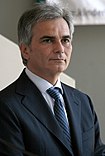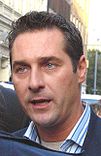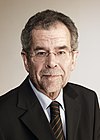| |||||||||||||||||||||||||||||||||||||||||||||||||||||||||||||||||||||||||||||||||||||||||||||||||||||
183 seats in the National Council of Austria 92 seats were needed for a majority | |||||||||||||||||||||||||||||||||||||||||||||||||||||||||||||||||||||||||||||||||||||||||||||||||||||
|---|---|---|---|---|---|---|---|---|---|---|---|---|---|---|---|---|---|---|---|---|---|---|---|---|---|---|---|---|---|---|---|---|---|---|---|---|---|---|---|---|---|---|---|---|---|---|---|---|---|---|---|---|---|---|---|---|---|---|---|---|---|---|---|---|---|---|---|---|---|---|---|---|---|---|---|---|---|---|---|---|---|---|---|---|---|---|---|---|---|---|---|---|---|---|---|---|---|---|---|---|---|
| |||||||||||||||||||||||||||||||||||||||||||||||||||||||||||||||||||||||||||||||||||||||||||||||||||||
| |||||||||||||||||||||||||||||||||||||||||||||||||||||||||||||||||||||||||||||||||||||||||||||||||||||
A legislative snap election for the National Council in Austria was held on 28 September 2008.[1] The previous election was held on 1 October 2006. The election (the 24th in Austrian history) was caused by the withdrawal of Austrian People's Party leader Wilhelm Molterer from the governing grand coalition (led by the Social Democratic Party of Austria) on 7 July 2008.[2] Due to dissatisfaction with the grand coalition and the two main parties, it was widely expected to be a realigning election, with gains for the opposition and up to seven parties expected to be in the National Council after the election.[3][4][5][6] The losses for the government parties (both the SPÖ and the ÖVP had the worst election result in history) resulted in strong gains for the far right, while neither the Liberal Forum nor the Citizens' Forum Austria (both of which were considered to have chances of gaining seats) gained as much as 2% of the vote, defying earlier expectations. The result of the election was seen as strong for the far-right and in support of Eurosceptics.[7]
Molterer resigned as party chairman as a result of the losses suffered by the ÖVP and was replaced by environment minister Josef Pröll; the Greens' federal spokesman Alexander Van der Bellen (in office since 1997) also resigned and was replaced by his deputy, Eva Glawischnig. Due to the LIF's failure to enter parliament on its own, LIF founder Heide Schmidt and financier Hans-Peter Haselsteiner both declared their complete withdrawal from politics, and the LIF's fate was seen as uncertain. Shortly after the election, BZÖ leader and Carinthian governor Jörg Haider died in a car accident.
- ^ "28. September als Neuwahltermin fix" (in German). Orf.at. Retrieved 26 November 2008.
- ^ "BBC NEWS | World | Europe | Austria ruling coalition crumbles". News.bbc.co.uk. 7 July 2008. Archived from the original on 19 December 2008. Retrieved 26 November 2008.
- ^ Bronner Online AG. "derStandard.at". Derstandard.at. Retrieved 26 November 2008.
- ^ "Die Zeit ist reif für einen Umbruch « DiePresse.com". Diepresse.com. Retrieved 26 November 2008.
- ^ "Datum 7-8/08 – Seiten der Zeit: Hajek bloggt: Die Unentschlossenen. Das geheime Wesen". Datum.at. Archived from the original on 25 December 2010. Retrieved 26 November 2008.
- ^ "Listenrekord bei NR-Wahlen | kurier.at". Kurier.at. Archived from the original on February 27, 2012. Retrieved 26 November 2008.
- ^ Pancevski, Bojan (29 September 2008). "Far Right storms election as Austrians back anti-EU rhetoric – Times Online". The Times. London. Archived from the original on October 11, 2011. Retrieved 26 November 2008.





